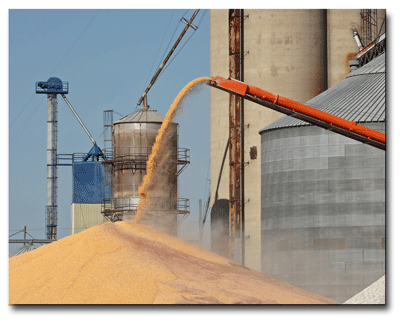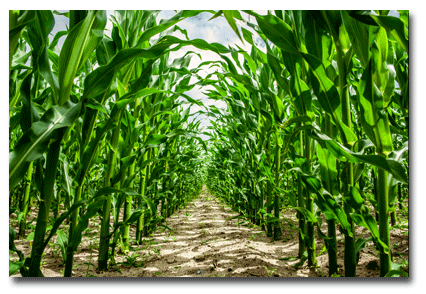Tampa Syngenta Viptera Lawsuits
Tampa Syngenta GMO Corn Lawsuits Recoup Losses for Farmers & Grain Companies in Tampa
From independent farmers to large distributors and exporters, Tampa entities throughout the domestic corn industry are filing Tampa Syngenta lawsuits. Blaming Duracade and Viptera GMO corn for a drop in corn prices and the rejection of entire export shipments to China, plaintiffs in Tampa Syngenta awsuits are seeking monetary compensation and the withdrawal of Viptera and Duracade seeds from the U.S. market. The page contains information on Syngenta lawsuits that are already underway, and places litigation against Syngenta in historical context in relation to major GMO lawsuit precedents.

The History of GMO Lawsuits
Farmers have found significant value in employing the technological advances provided by genetically modified organisms (GMO) to grow and sell crops, but years of profit-driven, unethical practices and subsequent litigation at the corporate level have repeatedly risked the livelihoods of everyone involved in the agricultural market. BASF, Bayer, Dupont, Dow Chemical Company, Monsanto and Syngenta, often referred to as the 'Big 6', are the largest GMO corporations in the agricultural input market (seed, pesticide and biotechnology industries) and have been at the center of a number of these lawsuits. These suits have uncovered much of how the monetary value of the affected foods, coupled with the worldwide reach of the industry's corporate influence, has been misused. The unethical trends at the top of the big business food pyramid are anything but new.
The direct modification of genes, known now as genetic engineering, began in the 1970's long after these companies were founded. However, all having a chemical background, the companies found a way to use this scientific advancement to broaden their reach within the agriculture industry. These six corporations are now estimated to control anywhere between 60-70 percent of all food purchased in the nation. This share of the market was not free of controversy, and a lack of respect for farmers and international law has time and again caused these multi-billion dollar conglomerates’ market-wide influence to pinch smaller entities such as farmers and distributors.
GMO lawsuits have gone in both directions, from Big Ag toward smaller entities, and from farmers and distributors against the global corporations. Monsanto has become notorious for generating bad press. Since its seed-development boom in the mid-1990s, Monsanto has sued over 125 individual farmers for either breach of contract or patent infringement in relation to the seeds they produce, claiming that patented seeds are planted without reimbursing the company for investments it took to develop the organism. The problem that has continually arisen with this approach is the burden of proof that lies on the farmers to prove their innocence. Farmers have repeatedly claimed and produced evidence that the sheer volume of Monsanto's seeds being used across the country has led to cross-contamination of their land and crops, and that farmers should not be held liable for an accidental produce confluence that tested positive for Monsanto's patent.
On the flip side, many of the plants designed by the big GMO companies in the early days of genetic engineering continue to contaminate farmers' land and affect their current crops. A farmer in Oregon found a strain of wheat on his land that he discovered was resistant to Roundup weed killer in 2012. This Monsanto strain was tested between 1998 and 2005, and is no longer in use by the company or desired in the agricultural market. The discovery of this wheat and other farms with similar strains caused a host of countries to postpone U.S. wheat imports, leaving the farmers with a wasted crop on their hands that the corporation had irresponsibly produced and abandoned years before. Farmers file GMO lawsuits in such cases in order to recover their losses.
Other big ag companies have been involved in similar GMO lawsuits. Dow Chemical Company is accused of knowingly making available the pesticide DBCP, which sterilized thousands of farm workers permanently. BASF was fined for 673 violations of pesticide laws in 2001 alone. Migrant farm workers sued Dupont in August of 2014 for underpaid wages, and the company has reportedly hired police officers to inspect farmer's fields for withholding seeds or violating the terms of their contracts. To make matters more complicated, many states consider massive agricultural corporations as farmers, thus governing huge corporations with many of the same laws that are supposed to protect local farmers from corporate abuses.
Tampa Syngenta Lawsuit Claims

One of the most recent and impactful points of litigation to come out of the Big 6 concerns the company Syngenta. In 2014, farmers in 11 states have filed lawsuits against Syngenta. Syngenta is the world's largest seed purveyor, garnering $14.7 billion in 2013. Corn grown from Syngenta Viptera and Duracade seed is being rejected by Chinese import authorities, contaminating massive export shipments with even a small trace of the genetic modification MIR 162. As a result of cross-pollination and mixing during the distribution process, the majority of American corn is being rejected by China. The logjam of rejected corn has caused a huge hole to form in the domestic and export market, result in major losses to farmers and grain companies in Tampa and across the nation.
Current Syngenta Corn Lawsuits: Cargill & Bunge
Cargill, one of the main food conglomerates involved with the corn trade, is one of the major players involved in the lawsuits and claim that Syngenta's failures to verify their corn crop with China has already cost the U.S. grain industry up to $2.9 billion as of October 27, 2014.
Numerous corn distributors and exporters have been refusing to accept Viptera corn from growers in order to protect export sales. In August of 2014, Syngenta sued Bunge in an effort to force the company to accept its GMO corn grown from Viptera seed. The case, Syngenta Seeds Inc. v. Bunge North America Inc., 11-04074, was tried in U.S. District Court, Northern District of Iowa, Western Division (Sioux City). In September of 2014, Judge Mark W. Bennett ruled against Syngenta, saying “Bunge’s decision to reject Viptera corn at all of its locations was a legitimate and reasonable business decision.” Because China, a major exporter of U.S. corn, was routinely rejecting corn grown from Viptera seed, the judge stated that, “The injunction would impose prodigious costs on Bunge for a situation that Bunge did not create.”
GMO Lawsuits
As a whole, the corporate culture that has developed around the agricultural input market has time and again proved to be predatory, cutting the sharpest corners at the expense of the farmers cultivating the lion's share of their products. The cost of their actions are felt hardest by the people most affected by the market fluctuations – the farmers standing trial against claims that can't be proven false, and the suppliers and exporters left with a binding contract from a large corporation and a season's worth of unsellable crops. Filing Tampa Syngenta lawsuits is the most effective means individual farmers and domestic grain companies in Tampa have to hold Syngenta accountable for the damage caused by Viptera and Duracade corn.
Midwestern Syngenta Corn Lawyers Offer Legal Support to Agricultural Businesses in Tampa
Multiple Syngenta Viptera class action lawsuits have been filed by a Washington, D.C. law firm. Major Midwestern law firms with proven track records against billion dollar international conglomerates are now investigating claims against Sygnenta by Tampa farmers and related agricultural businesses over Syngenta's Viptera and Duracade corn strains. Syngenta Viptera attorneys serving Tampa believe that entities within the corn industry who have sustained economic losses may be entitled to real compensation through Tampa Syngenta corn lawsuits. Our lawyers are available for free initial consultations, and can help by answering your questions and giving you a sense of your legal options.
Tampa Syngenta Viptera & Duracade Corn Lawsuits
Corn farmers, grain elevators, distributors and exporters in Tampa who have sustained economic losses in the past year may have grounds for a Tampa Syngenta corn lawsuit. We provide legal representation for Tampa corn lawsuits on a contingency basis, meaning that we charge no fee unless we win compensation on your behalf.




 OnderLaw, LLC -
OnderLaw, LLC -